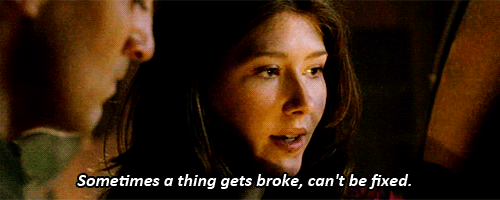When I was about 9, my grandmother had a stroke. She lost the ability to speak, the ability to write, and most of the use of the right side of her body. As she recovered she sometimes called me by the wrong name. She was shorter of temper, easily frustrated… but also decided for the first time in 60 years that ice cream and chocolate were great snacks, and she’d share bonbons with the dog while she watched TV.
It was fucking terrifying.
What I know now that I didn’t understand at 9 was that my grandmother wasn’t terrifying — it was terrifying to suddenly learn that our bodies are unreliable meat sacks that can fail and change us.
Also, I was nine.
Last night, John Fetterman participated in a debate on television for the role of Senator representing the state of Pennsylvania in the US Senate. He had a stroke a few months ago. He’s struggling to speak quickly and coherently, having trouble with auditory processing, and experiencing many of the other things that come with stroke recovery.
Note that I’m not calling him a “stroke victim”. He’s not a victim any more than when I lose a toenail I’m a “toenail loss victim” or when my car gets a flat tire it’s a “tire victim” or when someone catches COVID they are a “covid victim”.
The problem is not that John Fetterman had a stroke. The problem is not that there’s something “wrong” with Mr. Fetterman. It is not a moral failing to have a stroke. It is not a punishment to have a stroke. It’s a blood clot that formed where we would prefer blood clots not form.
The problem is that we react with fear, frustration, or anxiety to his disability.
This Fetterman-Oz debate is absolutely shocking. @DashaBurns was the only reporter who told the truth about Fetterman’s state. But it is so much worse than inability to track smalltalk. It is painful to watch this.
— Bari Weiss (@bariweiss) October 26, 2022
The problem is we are uncomfortable watching someone else doing their best.
We think they should be able to do exactly the same things we can, as well as we can. We think people who have trouble communicating through a meat suit that doesn’t behave the same way our meat suits do are somehow scary, incapable, unintelligent, or just frustrating.
And that’s just not true. Someone who stutters isn’t low intelligence (and someone who’s low intelligence isn’t low value). Someone who has an auditory processing disorder is literally incapable of listening, they aren’t stubborn or intransigent. Someone with memory issues or “brain fog” isn’t unable to participate in society, love people, work, or hang out watching movies.
If your reaction to someone with any of these issues — or any other disability — is “This is painful”, hey, congrats, you’re a human.
And now it’s time to do the work.
Sit in that pain. Sit with it. Get used to it. Yes, it is painful to watch someone try to get a message through their meat sack, especially if they were fine a few months ago. Acknowledge that it’s more painful for them than it is for you. They’re the ones struggling with the meat sack. Acknowledge that being afraid of things that are different from our expectations can be scary.
Then, choose not to stay afraid, or frustrated, or pained. Choose to accept it. We don’t get to choose our emotions but we do get to choose how we react to them. Choose to accept the person whose body doesn’t behave the same way yours does. Choose to accept the person whose brain doesn’t behave the same way yours does[1]Offer void for assholes, and people who choose to act racist, sexist, homophobic or transphobic, or ableist . A person can’t choose to “just not stutter”, but a person can choose to … Continue reading.
We also don’t get to choose our meat sack, nor do we get to choose whether it is cooperative one day to the next.
Here’s the thing: if we’re going to design and build great things for everybody, if we’re going to build accessible websites so that everyone can participate in society, then we can’t be afraid of the people we’re building for.
We can’t sit in a usability test with someone who physically can’t use a mouse and whine that it takes too long for that person to use the keyboard and it’s “painful”. We can’t talk to someone with a hearing disorder and bitch about their inability to enunciate. We can’t get angry at the person who requests that the corporate town hall be transcribed or live captioned so they can participate at the same level as their co-workers, even if it is more work for us. Even if it’s uncomfortable to face. Even if it’s painful.
If we do these things — if we act ableist — we can’t communicate with them, and if we can’t communicate with them we lose the information they have that we need. Because they’re human. Because they’re our customers, clients, and coworkers. Because at that moment, we fail to do our jobs and live up to our commitments. Because at that moment, we’re choosing “asshole”.
Sit with it.
Sit. with. it.
Join the rest of us as we sit with it.
Notes
| ↑1 | Offer void for assholes, and people who choose to act racist, sexist, homophobic or transphobic, or ableist . A person can’t choose to “just not stutter”, but a person can choose to not be an impatient asshole to the person with the stutter. “Asshole” is not a disability. |
|---|




